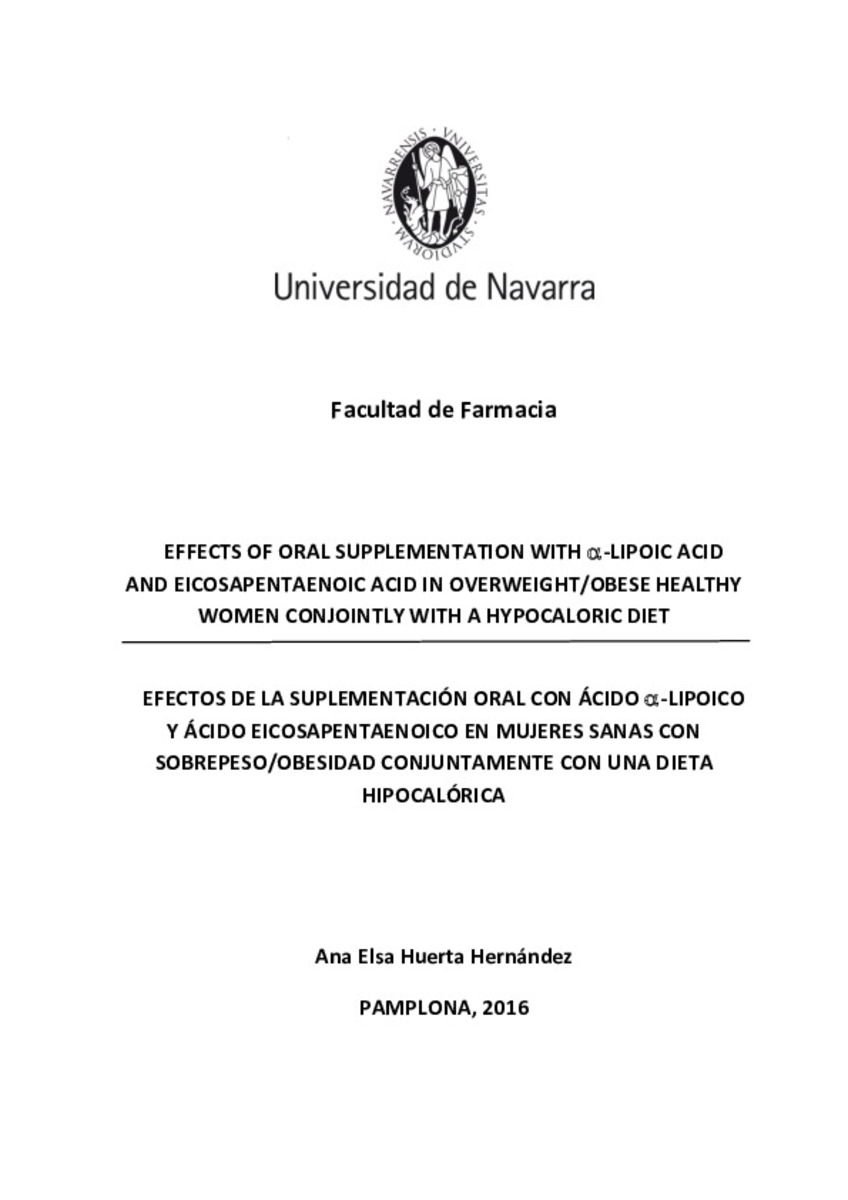Effects of oral supplementation with alpha-lipoic acid and eicosapentaenoic acid in overweight/obese healthy women conjonintly with a hypocaloric diet
Palabras clave :
Materias Investigacion::Ciencias de la Salud::Nutrición y dietética
Materias Investigacion::Farmacia::Farmacia y farmacología
Fecha de publicación :
27-jun-2017
Fecha de la defensa:
30-sep-2016
Cita:
HUERTA, Ana Elsa. “Effects of oral supplementation with alpha-lipoic acid and eicosapentaenoic acid in overweight/obese healthy women conjonintly with a hypocaloric diet”. Moreno, M.J. y Martínez, J.A. (dir.). Tesis doctoral. Universidad de Navarra, Pamplona, 2016
Aparece en las colecciones:
Estadísticas e impacto
0 citas en

0 citas en

Los ítems de Dadun están protegidos por copyright, con todos los derechos reservados, a menos que se indique lo contrario.









